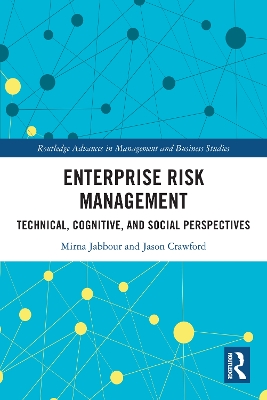ERM is considered a dynamic capability that is critical to companies’ success from strategic and performance perspectives and is increasingly implemented in response to growing pressure from external stakeholders to enact and add legitimacy to existing management control systems. However, implementing ERM is a challenging process where success is dependent on balancing technical and social factors. This book explores the challenges of implementing ERM from technical, cognitive, and social perspectives to enhance the organisation’s capacity to generate and integrate information and knowledge about risk and uncertainty.
In existing publications, ERM implementation is mainly viewed from technical or educational perspectives and treated as formal, technical, linear processes. This book takes a different stance by recognising that implementation depends on formal and informal mechanisms that require a balanced combination of technical and social approaches. It changes the paradigm to demonstrate that the implementation of ERM is not a linear process that is similar across industries and organisations, but relies on multiple dependencies such as leadership, corporate governance, and the culture of the organisation.
This book will be a valuable resource for scholars, as well as upper-level students, across disciplines related to risk management, including accounting and finance, business and management, leadership, and organisational studies.
- ISBN13 9781040262450
- Publish Date 2 December 2024
- Publish Status Forthcoming
- Publish Country GB
- Publisher Taylor & Francis Ltd
- Imprint Routledge
- Format eBook (EPUB)
- Language English
